Two new projects show that when it comes to housing, small can be beautiful
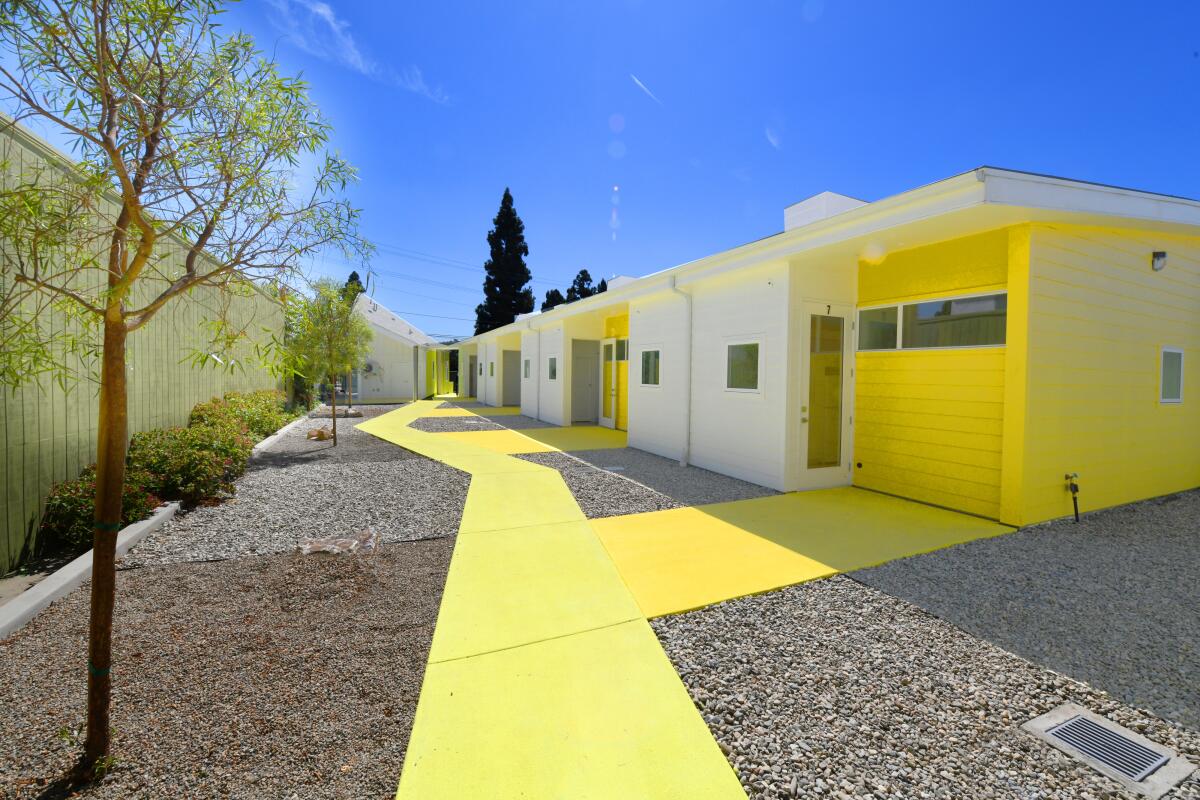
- Share via
What should we eat while Twitter burns? Maybe these adorable baby cheesecakes by artist Nick Cave? I’m Carolina A. Miranda, art and design columnist at the Los Angeles Times. I’m here for the cheesecakes and the essential arts news:
Tiny by design
Among the many crushing problems facing Mayor-elect Karen Bass (as well as the City Council, which, frankly, has more power) is the question of housing. Los Angeles needs much more of it, especially affordable and supportive options, in all of its forms — and in models that move toward density and away from single-family sprawl.
Good design wouldn’t hurt. The podium apartment units being thrown up by developers are frequently designed to maximize square footage at the expense of daylight and fresh air. As one architect described them to me a couple of years back, many buildings are simply two stories of parking “followed by three stories of crap.”
Recently, I got a look at two new developments that are bringing some intriguing design touches to units that make the most of tight spaces.
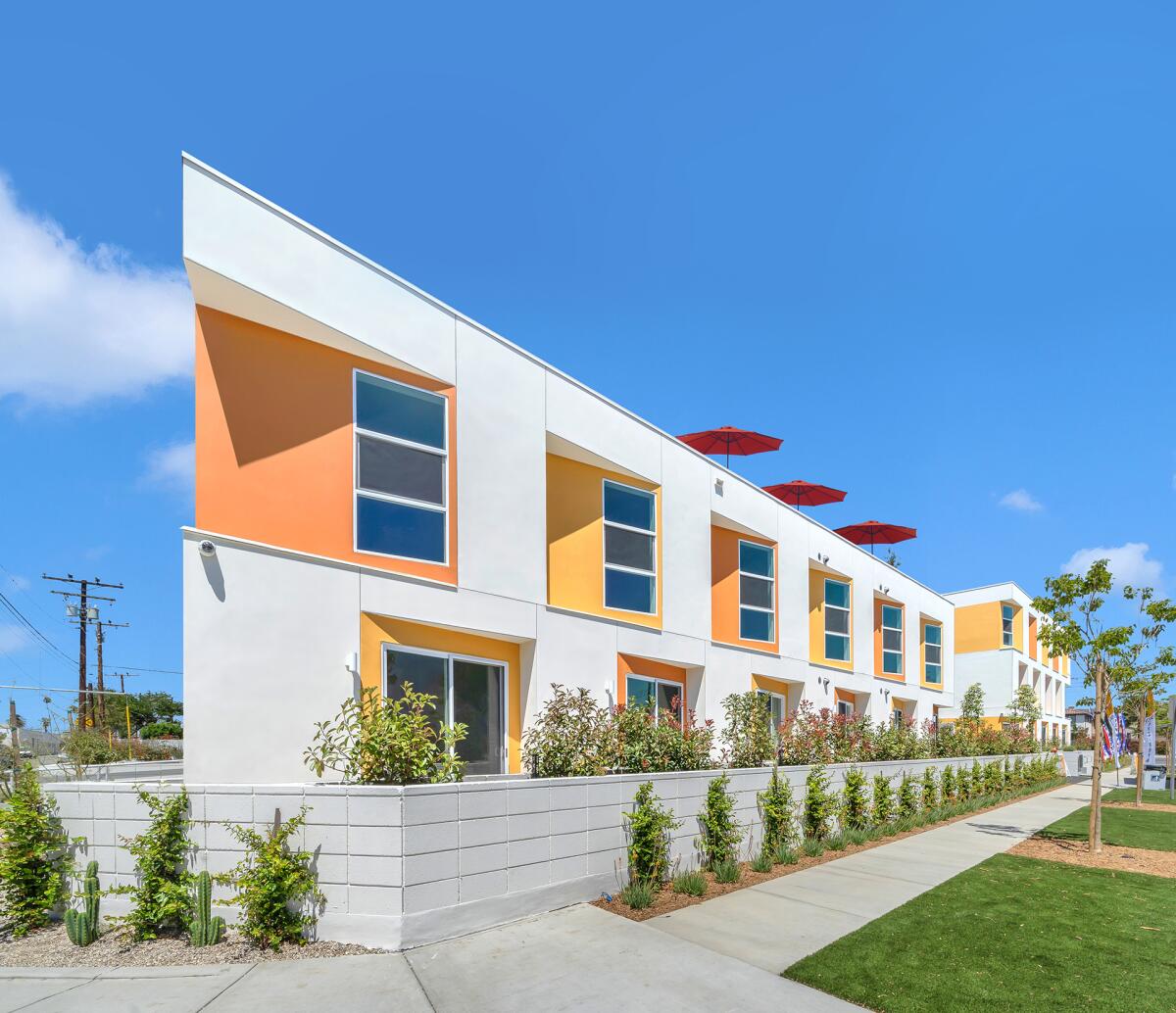
The first, a permanent supportive housing project designed by Lehrer Architects in Willowbrook, consists of seven 300-square-foot studio spaces tucked into a small lot next to a church on Willowbrook Avenue, just south of 119th Street. The second, 16819 Normandie (also known as Cocoon 63), by DE Architects, is a new market-rate residential development in Gardena harboring 63 studios in a former commercial site that once contained a nursery.
Both sites make the most of snug lots in ways that are thoughtful and humane.
Make the most of L.A.
Get our guide to events and happenings in the SoCal arts scene. In your inbox every Monday and Friday morning.
You may occasionally receive promotional content from the Los Angeles Times.
At Willowbrook, Lehrer Architects, led by founder Michael Lehrer, squeezed seven lemon-colored units and a community space into a narrow property between a single-family home and a church. A long, horizontal structure harbors the apartment units, all of which have kitchenettes, ADA-accessible bathrooms, cross ventilation and skylights that admit daylight.
A shared courtyard provides a place to relax, while a community room offers a more sheltered space in which to gather. Though tiny, the room makes the most of the location, with clerestory windows and cathedral ceilings, which come to a point on the northeastern corner of the building. It’s a nice nod to the architecture of the church next door.
Also on-site is a small counseling office; the development will house formerly unhoused veterans. And the location couldn’t be more convenient: around the corner from a large shopping center, with a supermarket, a pharmacy and a Metro stop for the A and C lines. No automobile is needed to access crucial services (including a hospital, which is also within walking distance).
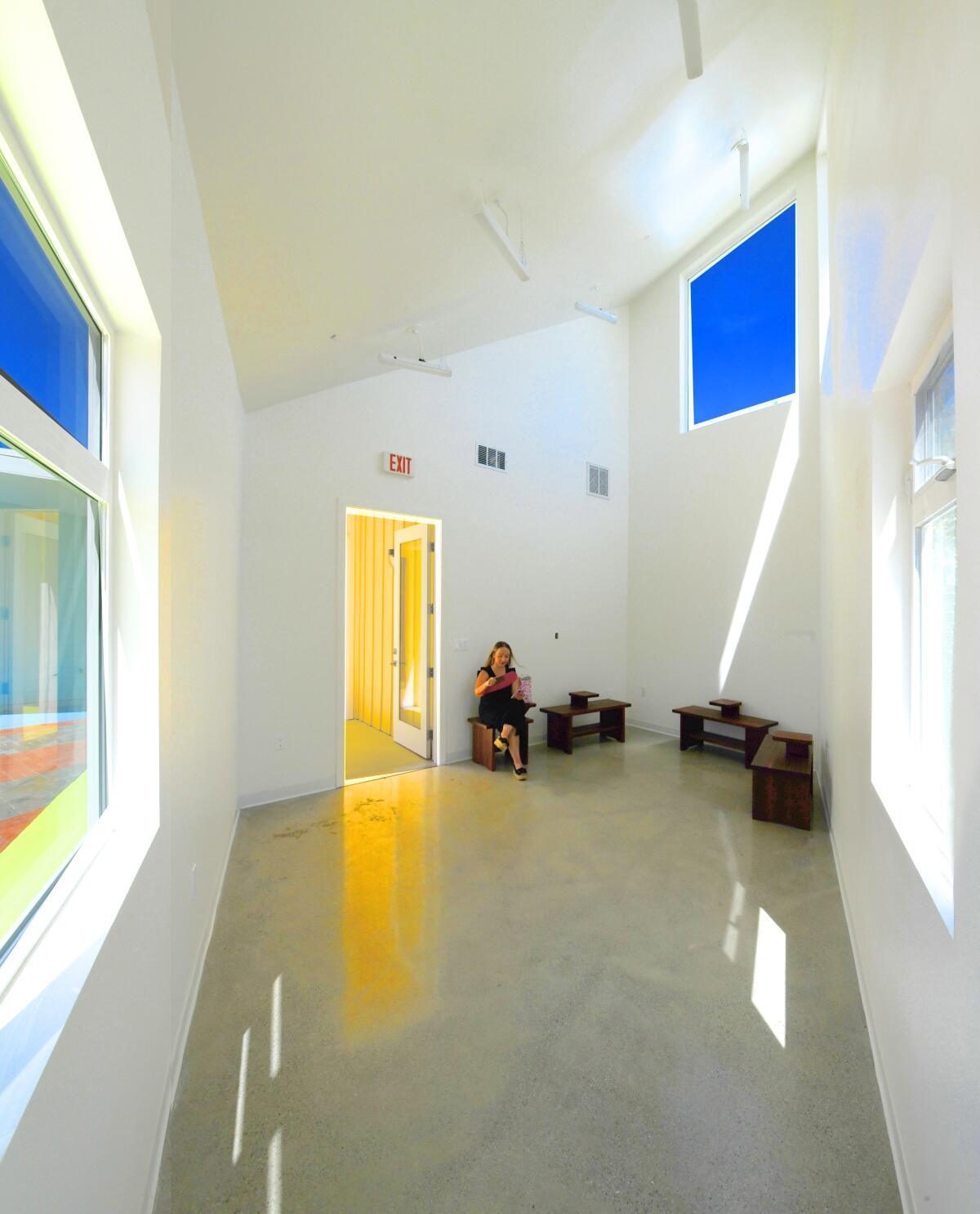
Farther south, in Gardena, DE Architects, a Santa Monica-based firm founded by Don Empakeris, had more space to work with but nonetheless faced the challenge of packing as many units as possible into a small city block — without excavating for underground parking, which can add precipitously to the cost of construction. He solved that problem by installing a five-tier puzzle lift mechanical parking system in one corner of the property that fits tenants’ cars into a stacked grid.
It’s like car Tetris: You drive your car onto the lift, enter a code, and then the system automatically places the vehicle within its designated spot on the grid. (The YouTube videos of these lifts in action are geekily hypnotic.)
This meant that architects and developer could then invest more resources into the design of the units, which are staggered over a pair of two- and three-story buildings whose window wells are accented in bright shades of orange and yellow. (Bless all the builders who aren’t drowning us in dingy gray.)
Ground-floor units open to small patios that face the street — but are buffered from it by waist-high planters filled with hedges. A 3,500-square-foot roof deck, as well as a rec room, provide spaces to hang out or get fresh air. To make the individual units feel airier — each is about 350 square feet — the architects raised the ceiling height to 9 feet (above the more standard 8 feet). The studios are small, but they do not feel like shoeboxes. With a few small adjustments, each can also be made ADA-compliant.
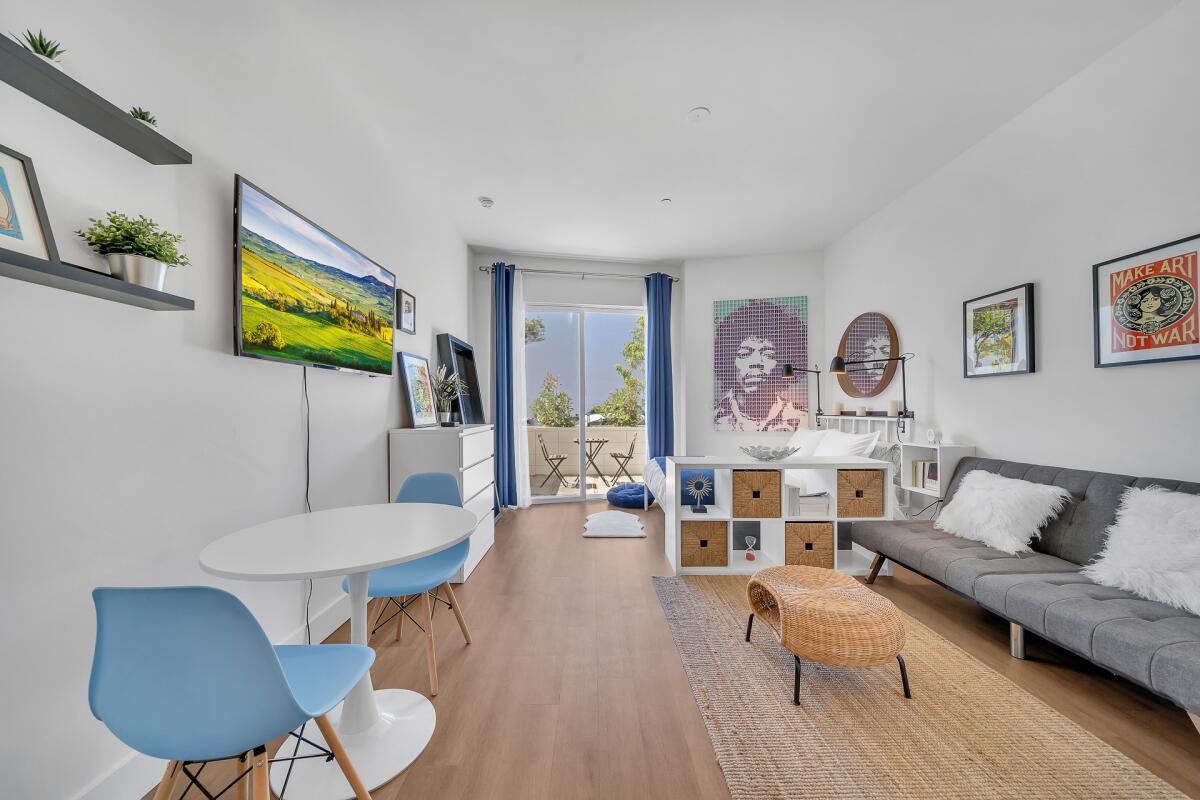
At both developments, runoff water is captured and channeled into plantings that feature drought-friendly species. As Lehrer told me as we walked around his Willowbrook development, “What’s going on under the ground here is incredible.”
Both projects also add density in ways that don’t feel out of place in low-rise areas. This isn’t about adding towers. It’s about using space in ways that make the most of location, air and light. “We spent a lot of time,” says Empakeris, “making sure every inch has a purpose.”
In and out of the galleries
I got to hang with Henry Taylor, a prolific L.A. painter who is known for his portraiture but whose work extends well beyond that, smashing together places, times, found images and pieces of art history. The artist is the subject of a major survey at MOCA Grand Avenue, which digs deep into his career, going back to some of his early drawings from the ’80s, made when he was a psychiatric tech at Camarillo State Mental Hospital.
I first encountered Taylor’s work at MoMA PS1 back in 2012. The sculptural piece at the heart of that show — an assemblage of broom handles and jugs arranged in a way that seemed to tweak early Modernism’s obsession with African art — always stuck with me. (I’d love to see it in a face-off with Picasso’s “Les Demoiselles d‘Avignon” at MoMA, a work that Taylor has also riffed on in his canvases.)
Taylor once painted my portrait (!!!). I now attempt to paint a portrait of him with words.
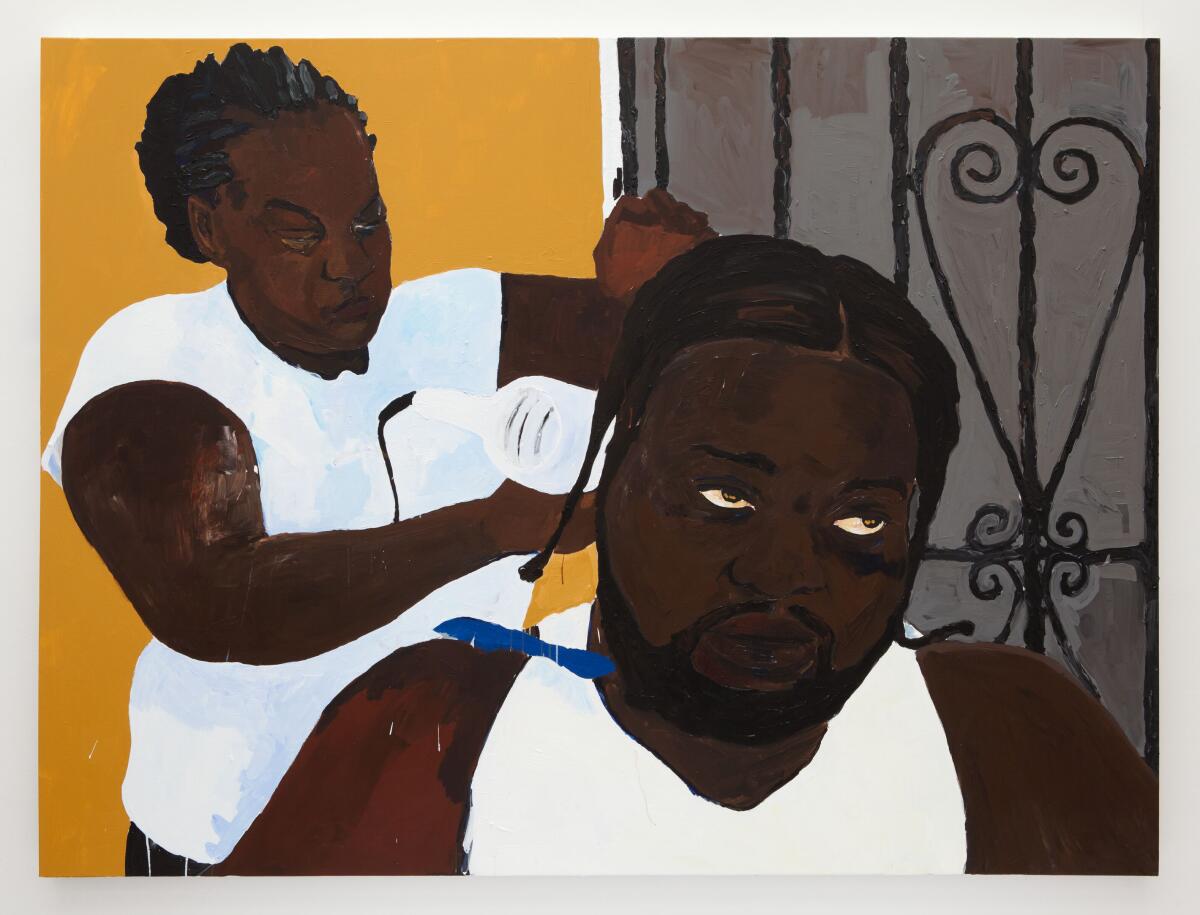
When the Autry Museum and the Southwest Museum merged in 2003, it put the Autry in charge of 400,000 Indigenous objects that for years had been stored in the Southwest Museum’s Highland Park building — a leaky structure with climate control issues. Enter the Autry’s new Resources Center in Burbank, a 100,000-square-foot space that not only is state-of-the-art but also is rethinking the ways in which Indigenous communities interact with objects most sacred to their cultures. My colleague Deborah Vankin has the story.
Times art critic Christopher Knight has a look at a new documentary about the work of Light and Space artist Robert Irwin debuting at the DOC NYC festival. “Robert Irwin: A Desert of Pure Feeling,” directed by Jennifer Lane, tracks Irwin’s unlikely career. The film, he writes, “is structured as a conventional biographical chronology. That predictable form finally conflicts with such unconventional art.”
Classical notes
Gustavo Dudamel and the L.A. Phil, as well as the experimental chamber orchestra Wild Up, led by Christopher Rountree, have both earned Grammy nods for orchestral performance.
Enjoying this newsletter? Consider subscribing to the Los Angeles Times
Your support helps us deliver the news that matters most. Become a subscriber.
You can find the complete list of 2023 Grammy nominees here, as well as a roundup of all the snubs and surprises.
On and off the stage
“2:22 — A Ghost Story” is giving new meaning to the term horror show — and that’s a good thing. Danny Robins’ horror-inspired play, which first premiered in London in 2021, has been drawing crowds back to Center Theatre Group, becoming the second-bestselling production since the post-pandemic reopenings almost a year ago. Constance Wu, who stars as new mom Jenny, tells The Times’ Jessica Gelt there’s a reason for that: “This is f— fun. It’s thrilling. It’s entertaining.”
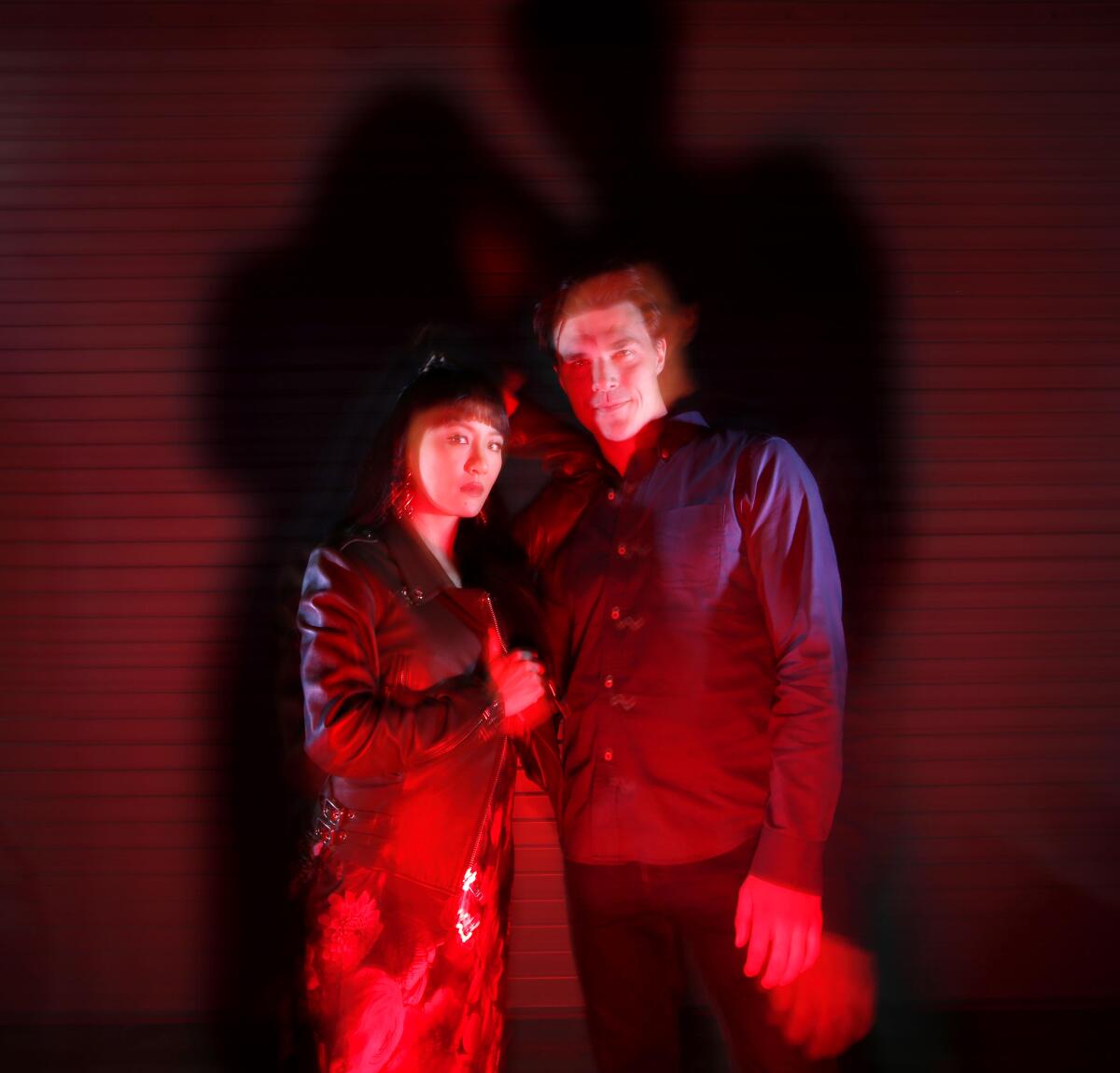
The current Broadway production of “Funny Girl,” starring Lea Michele as Fanny Brice, will be releasing a cast album.
Around L.A.
A guitar shop in Boyle Heights has made instruments for high-profile musicians — including Raúl Pacheco of Ozomatli and singer-songwriter Gaby Moreno — and has long offered classes to young people in the neighborhood. But Candelas Guitars has been slammed financially by the pandemic — and the scholarships the organization once offered to low-income students may disappear, reports The Times’ Selene Rivera.

Dolores Huerta was honored at a concert at the Soraya that paid tribute to a key labor leader with one of the art forms she loves most: music.
The L.A. Forum for Architecture and Urban Design has been doing a podcast series asking different folks in the world of design and beyond for the five L.A. places that best represent the city to them. I’ve been on talking about freeway psychics and the Stahl House. As a follow-up, I interviewed novelist Carribean Fragoza, author of the short story collection “Eat the Mouth That Feeds You,” about her favorite spots. Get ready to hear about car wash tacos and Santee Alley lingerie.
Essential happenings
The L.A. Goes Out newsletter has landed! Steven Vargas has released the first issue, and it’s got the reopening of the Watts Towers, Chloë Bass’ solo show at the Skirball and Peter Sellars’ staging of Heinrich Schütz’s “Musikalische Exequien” with the L.A. Master Chorale at Disney Hall. Vargas has all the essentials, including the latest happenings, free events and things to do with kids. You can sign up here.
Listings maestro Matt Cooper, as always, also has your weekend covered — with all the culture happenings conveniently mapped by neighborhood. This includes Vinny DePonto’s “Mindplay” in Westwood, the Long Beach Symphony at the Terrace Theatre and Lynn Nottage‘s 2021 dramedy “Clyde’s” at the Taper in downtown.
Last Friday, I went to see Christina Catherine Martinez‘s show “Aesthetical Relations” at REDCAT. Martinez, as you may know, is a regular contributor to The Times. (She may have last been seen in these parts interviewing artist Tita Cicognani in a hot tub.) In addition to being a critic, she is also a comedian — a very highbrow one who somehow fuses theory and Ross Dress for Less into a single routine. And don’t get me started about the choreography involving Jesus Christ and Walter Benjamin’s Angel of History.
All of this is a long-winded way of saying that if you have a chance to see her show, ABSOLUTELY GO! You can find her on Instagram at @xtina_catherine.

Moves
The San José Museum of Art announced the acquisition of 41 works by 27 artists, including Felipe Baeza, Eamon Ore-Giron, Catherine Opie and rafa esparza.
The full list of this year’s Perenchio Foundation grantees, including organizations such as Beyond Baroque, Casa 0101, Fulcrum Arts and Plaza de la Raza, among many, many others.
Plus, a list of the AIA L.A.‘s Design Awards winners. This year’s Gold Medal went to Gabrielle Bullock of Perkins&Will.
Karyl Lynn Burns, a co-founder of Ventura’s Rubicon Theatre, has announced that she will retire after 25 years at the helm. Beverly and Kirby Ward, who have been connected with the company since 2008, will take over as artistic directors.
Passages
Michael Butler, the free-spirited producer who brought the musical “Hair” to Broadway, died earlier this month at the age of 96. Times obituaries editor Steve Marble writes about how that came to be: Butler, who’d served as an advisor to President Kennedy, was contemplating a political run when he came across an off-Broadway production of “Hair.” All interest in politics promptly evaporated after seeing the show.
Ned Rorem, a Pulitzer Prize-winning composer who took the honor in 1976 for his orchestral suite “Air Music,” is dead at 99.
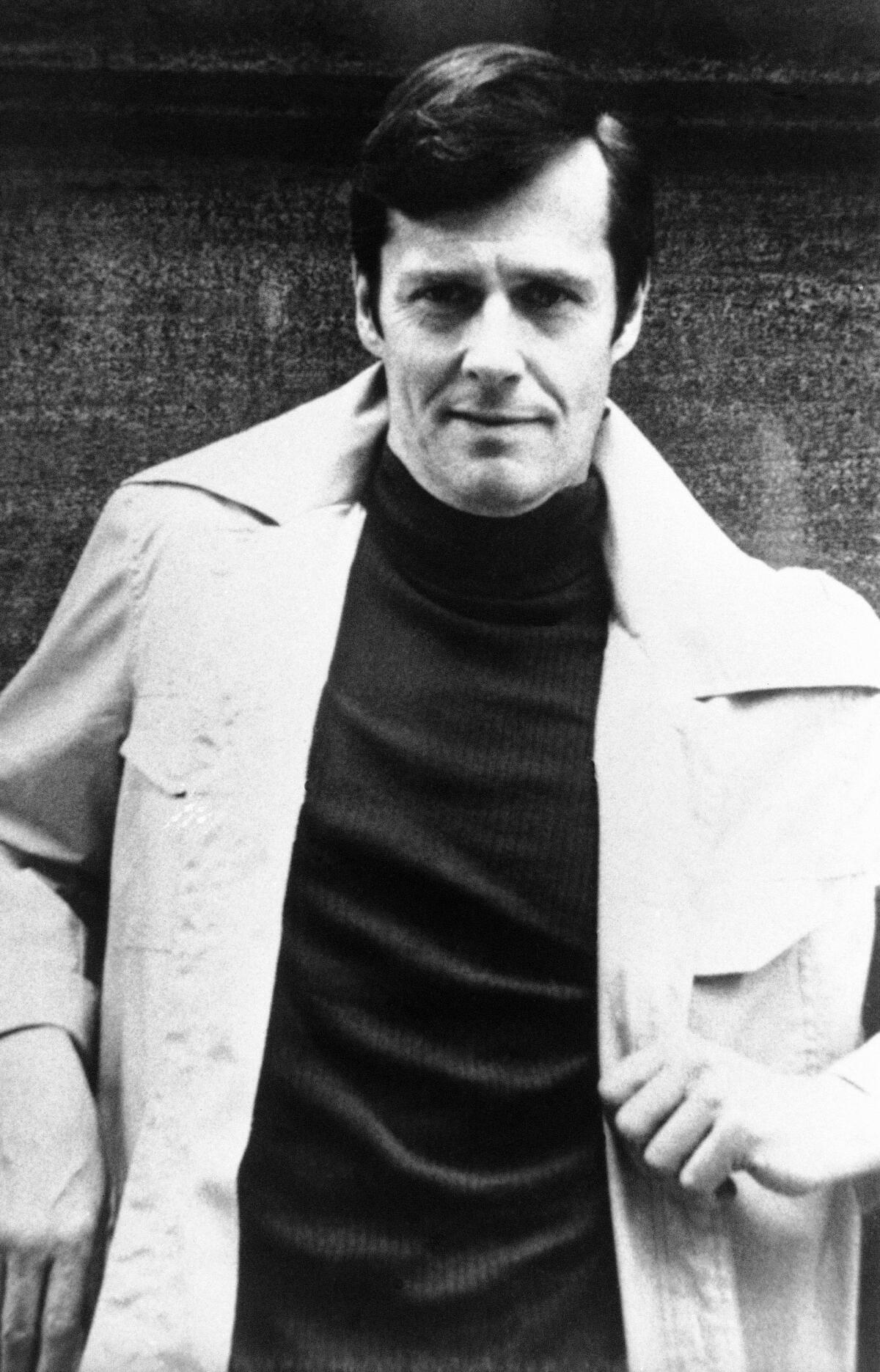
In other news
— The social part of social media? It’s an illusion, writes Edward Ongweso Jr. in Vice.
— As layoffs hit the tech industry, Meta’s Open Arts program, too, has suffered cuts.
— Six months into the gig, SFMOMA’s new director, Christopher Bedford, is starting to make changes.
— Approaching 78, gallerist Larry Gagosian is beginning to think legacy. Though what that legacy might be is a big question mark.
— In Encinitas, Cog•nate Collective has a show at ICA North inspired by markets.
— The Haitian village of Noailles, renowned for its metal artisans, has been overrun by warring gangs.
— The Getty Trust has committed $1 million to ALIPH, an organization working to protect heritage in conflict areas, with the purpose of preserving Ukrainian heritage.
— Misty Copeland talks ballet, body image and race with Terry Gross.
— Lizzo bought a platinum flute in San Francisco.
— Sign me up for the technicolor palettes of street party sound systems in Barranquilla.
— “Radio Ambulante” has an interesting story about how the headdress that is alleged to have belonged to Moctezuma and is now held by a museum in Vienna found itself in the crosshairs of geopolitics and a guerrilla prank.
— A visual guide to the architecture of World Cup stadiums.
— ¡Mambo!
And last but not least ...
A Soviet-era film inspired by Peruvian Indigenous myth and graphics.
The biggest entertainment stories
Get our big stories about Hollywood, film, television, music, arts, culture and more right in your inbox as soon as they publish.
You may occasionally receive promotional content from the Los Angeles Times.




